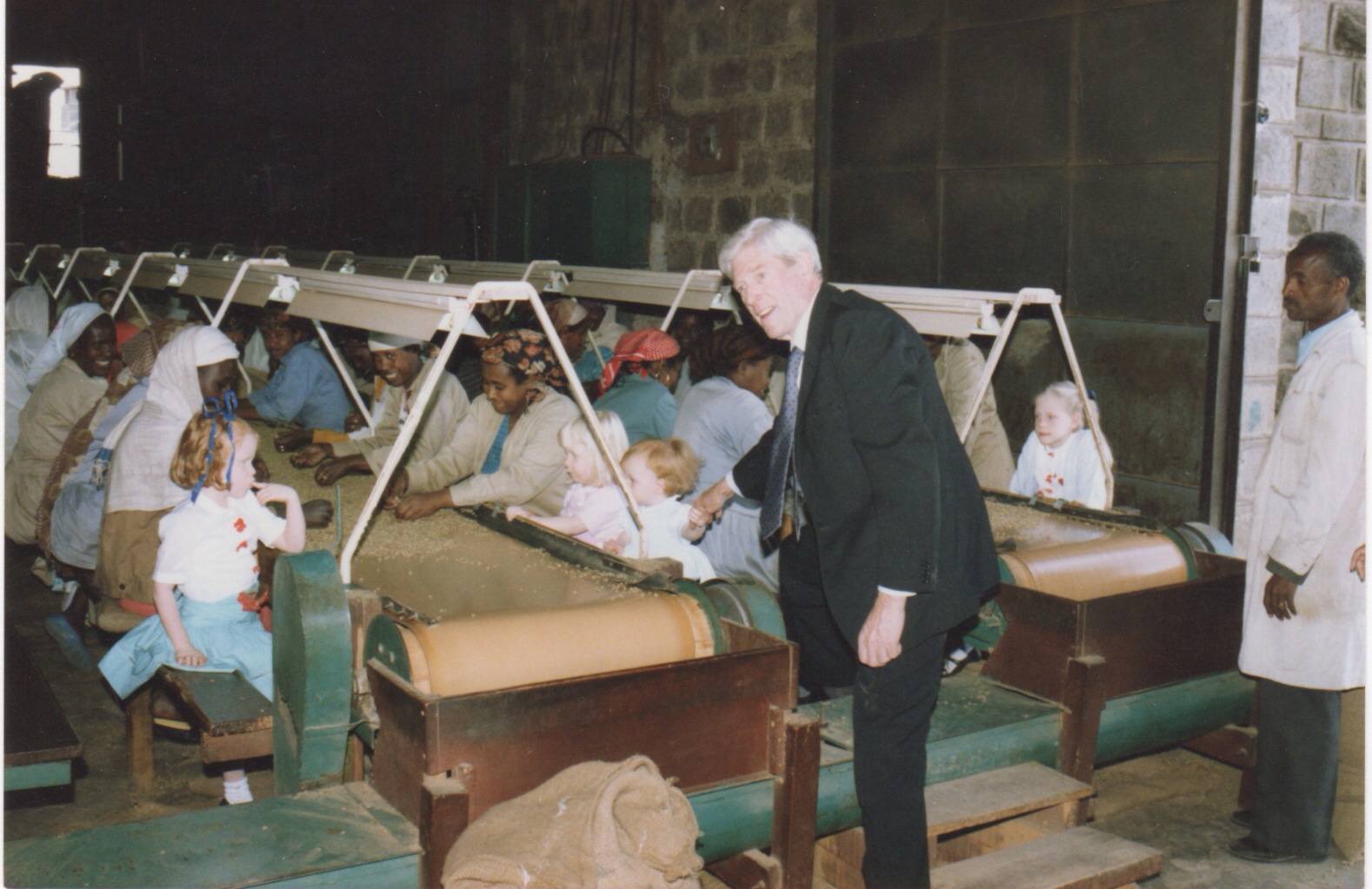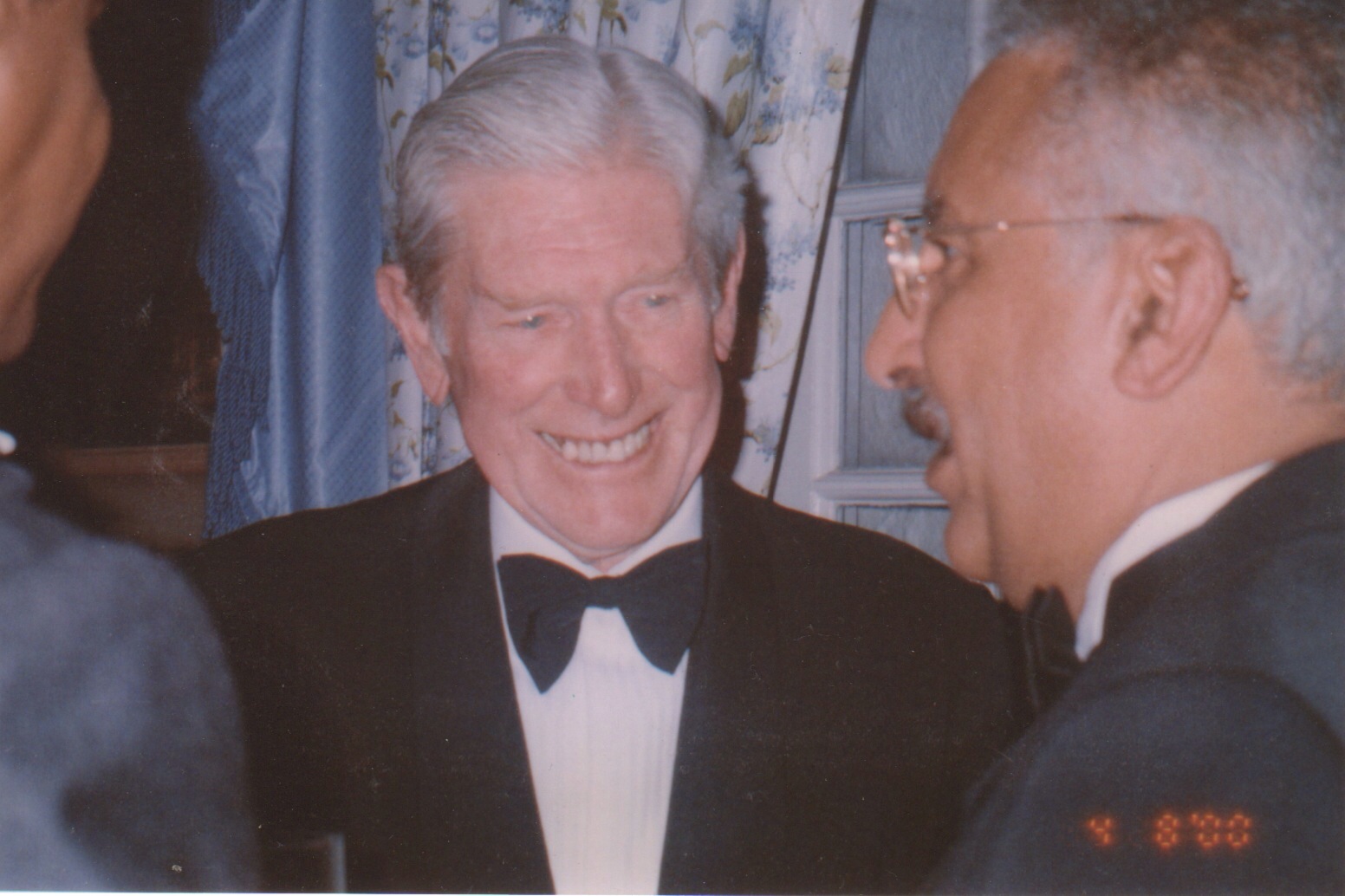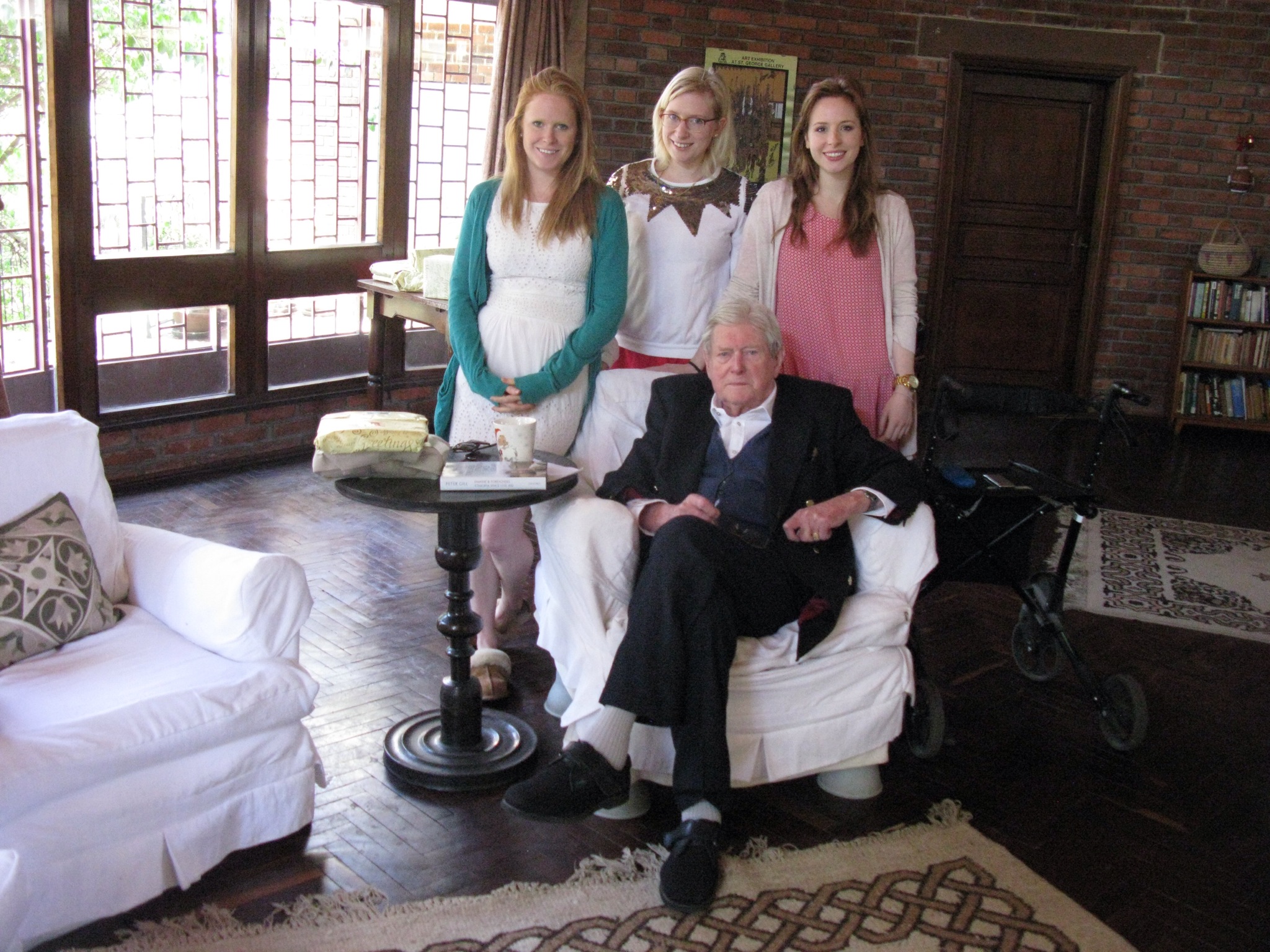19th January 2015
Geoffrey Wetherell
 With his grandchildren in his old factory about 20 years ago
With his grandchildren in his old factory about 20 years ago
Geoffrey Wetherell, who passed away at the age of 95 on 23 December, was at the time of his death the longest surviving Briton in Ethiopia – by quite some way.
He first came to Ethiopia with the British armed forces in 1941. With liberation of the country completed that same year, he was transferred to Kenya for training and a posting to Burma. But the requirement for a finance officer for the then Franco-Ethiopian railway, which remained in British hands until the end of the war in Europe, earned him a welcome return to Ethiopia. This proved a major turning point in his life. By the time he was demobilized in 1946, he had married in Ethiopia and had begun to lay the foundations of what became a life-long involvement in and commitment to this country.
 With HE Ato Newai at a dinner to mark HM The Queen Mother’s 100th Birthday in 2000
With HE Ato Newai at a dinner to mark HM The Queen Mother’s 100th Birthday in 2000
After a cold Christmas in England, Geoffrey was back in Ethiopia in 1947 as assistant manager of the British trading company Mitchell Cotts’ operation here. In time, as its managing director, he developed the company into a major player in the Ethiopian economy, branching out from an import and coffee-exporting business to pioneering ventures such as the establishment of cotton plantations at Tendaho and the National Meat Corporation near Shashemane.
In 1973, he founded Ambassa Enterprises, his own coffee exporting business. It quickly built up an excellent reputation overseas and was one of only a handful of private companies in the sector to survive the Derg era. He played an active role in its management into his nineties.
 With his granddaughters, Christmas 2013
With his granddaughters, Christmas 2013
Geoffrey contributed significantly to the wider development of the coffee sector in Ethiopia. He was always ready to give advice to others, including Ethiopian and overseas officials, drawing on his long experience. In the period before 1974 in particular, he played a leading role in the Chamber of Commerce. He was President of the British Community in the mid-sixties, including at the time of HM The Queen’s State Visit in 1965. More recently he served for many years as chairman of the Hamlin Fistula Hospital’s Board in Addis Ababa.
For many years, Geoffrey’s presence at the Remembrance Sunday commemoration provided the last link with the Commonwealth servicemen who fought for Ethiopia’s liberation. His memorial service is scheduled to take place in Addis Ababa at 11.00 on 9 February at St Matthew’s Church, where he worshipped regularly since the Church was built in 1954.
I am indebted to his son Gordon, one of my predecessors as British Ambassador in Addis Ababa, for the background information on Geoffrey Wetherell’s life.